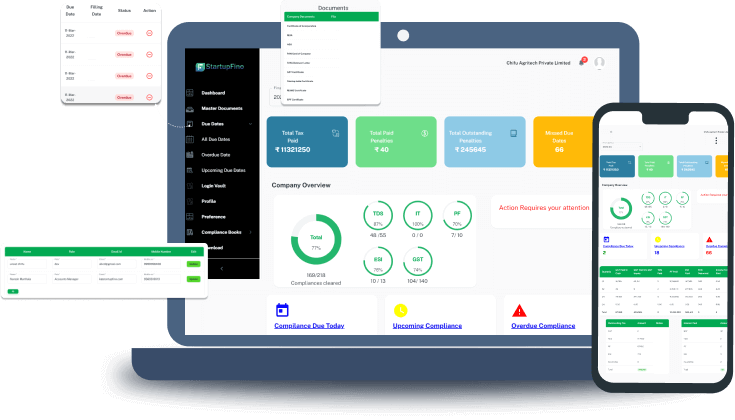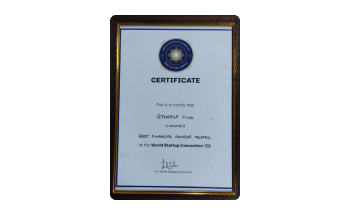Significance of Accounting in the Shipping and Logistics Business
The shipping and logistics business operates in a highly dynamic and complex environment characterised by extensive financial transactions and operations. In this context, accounting plays a pivotal role in ensuring the sustainable growth and success of businesses. The importance of accounting in the shipping and logistics business can be understood via these significant aspects:
1. Financial Management
Accounting serves as the cornerstone of effective financial management within the shipping and logistics industry. It facilitates the systematic tracking and analysis of revenues, costs, assets and liabilities, thereby enabling informed decision-making. Accurate financial records and the generation of financial statements empower companies to gauge their financial health, identify areas for improvement and formulate strategic financial strategies.
Accurate financial information enables companies to assess their profitability, liquidity and solvency. Businesses can generate detailed financial statements by carefully documenting their moves. These statements include income records, balance sheets and cash flow reports. All of this paperwork gives a full picture of how the company's doing financially. It helps those in charge make smart choices about where to put their resources, what investments to jump on and how they can grow their operations. Plus, when you dive into the numbers, you might spot trends and patterns that can guide you in trimming costs and boosting revenue.
2. Cost Control and Optimisation
The shipping and logistics business entails many of the costs, including transportation expenses, warehousing fees, fuel costs, customs duties and labour expenditures. Effective accounting practices are instrumental in tracking and managing these costs efficiently. By conducting thorough cost analysis and budgeting, companies can identify opportunities for cost reduction, optimise resource allocation, negotiate favourable contracts with suppliers and service providers and enhance overall operational efficiency.
Accounting's role in cost control and optimisation extends beyond mere expense tracking. It involves the establishment of cost centres and allocation of costs to specific activities or services. Through cost allocation, businesses gain insights into which aspects of their operations are most resource-intensive and can, therefore, explore ways to streamline processes and reduce unnecessary expenditures. Additionally, cost control measures can include variance analysis, which helps organisations identify deviations from budgeted costs and take corrective actions promptly.
3. Regulatory Compliance
The shipping and logistics business is subject to numerous regulations, tax laws and industry-specific restrictions. Auditing ensures that businesses comply with these legal and regulatory requirements, providing transparency and reducing the risk of fines or legal challenges. Accurate financial reporting is essential to fulfilling this obligation and maintaining transparent communication with stakeholders including regulatory agencies, investors and customers.
Accounting professionals in the shipping and logistics industry must stay current with evolving legislation including changes to tax laws, customs laws and international trade agreements Administered particularly in ensuring that financial statements are prepared in accordance with generally accepted accounting principles or international financial reporting standards, as applicable. Compliance with tax laws and regulations is essential to avoiding penalties and maintaining sound financial condition. Moreover, transparent financial reporting increases corporate credibility and builds stakeholder confidence in the business and industry.
4. Decision-Making and Strategy
Accounting information plays a pivotal role as a valuable source of insight in the Shipping and Logistics business, aiding in decision-making and strategic planning. Through financial reports, in-depth analysis and key performance indicators, management gains the ability to scrutinise the profitability of particular routes, evaluate the effectiveness of different services and pinpoint areas that are primed for enhancement or expansion.
In an industry as fiercely competitive as shipping and logistics, making informed decisions stands as a significant imperative. Accounting data can provide significant information on the cost-effectiveness of different transportation routes, allowing companies to allocate resources strategically. By analysing financial metrics and KPIs, businesses can benchmark their performance against industry standards and set achievable goals for growth. Additionally, financial forecasts derived from accounting data can aid in long-term strategic planning, helping organisations adapt to changing market conditions and find new opportunities.
5. Risk Management
Effective risk management is a fundamental aspect of financial stability in the Shipping and Logistics Business. Accounting assumes a pivotal role in the identification, assessment and mitigation of financial risks within a business, including challenges such as cash flow fluctuations, currency exchange rate volatility, credit-related concerns and supply chain disruptions.
Through accounting, companies gain the ability to proactively anticipate and ready themselves for a number of financial risks. This proactive stance is facilitated by the provision of real-time data on their financial standing. For instance, cash flow statements can reveal potential liquidity challenges, allowing businesses to take proactive measures to secure funding or manage working capital more efficiently.
Moreover, accounting professionals can conduct sensitivity analysis to assess the impact of currency exchange rate fluctuations on the company's financial performance and explore hedging strategies to mitigate currency risk. Additionally, by closely monitoring accounts receivable and payable, businesses can identify credit risks and implement credit management policies to safeguard against bad debts. In the event of supply chain disruptions, accurate accounting records can assist in quantifying the financial impact and expediting recovery efforts.































































